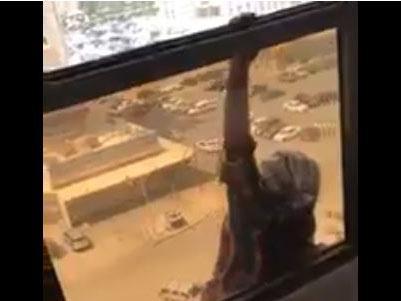Woman who filmed her maid falling from a building and didn't try to help 'detained by police' in Kuwait
The case has renewed questions about the treatment of domestic workers

Your support helps us to tell the story
From reproductive rights to climate change to Big Tech, The Independent is on the ground when the story is developing. Whether it's investigating the financials of Elon Musk's pro-Trump PAC or producing our latest documentary, 'The A Word', which shines a light on the American women fighting for reproductive rights, we know how important it is to parse out the facts from the messaging.
At such a critical moment in US history, we need reporters on the ground. Your donation allows us to keep sending journalists to speak to both sides of the story.
The Independent is trusted by Americans across the entire political spectrum. And unlike many other quality news outlets, we choose not to lock Americans out of our reporting and analysis with paywalls. We believe quality journalism should be available to everyone, paid for by those who can afford it.
Your support makes all the difference.Police in Kuwait have reportedly detained a woman who filmed her Ethiopian maid falling from the seventh floor of a building.
The woman did not try to help the maid and simple called to her “Oh, crazy, come back.”
Footage, posted by the woman to social media, showed the maid hanging onto a balcony with one hand, shouting “hold me, hold me” and screaming.
Her hand then slips and she falls down. A loud thud can be heard. The woman filming remained silent.
The maid reportedly survived with only minor injuries and another video showed her walking from the roof with emergency workers.
It is unclear how she came to be hanging from the balcony but local media reports suggested she was trying to kill herself.
The woman said she filmed the event because she didn’t want to be accused of the maid’s murder if she died.
The Kuwait Times reported that lawyer Fawzia al-Sabah would be filing a complaint with the public prosecutor over the behaviour of the woman.
The video has renewed questions over the treatment of domestic servants in Arab countries, where they are employed by many higher income families.
In Kuwait, there are around 600,000 domestic workers, mainly migrants to the oil rich gulf state.
Complaints of abuse are commonplace and the country’s kafala system of visa sponsorship prevents domestic workers from changing jobs without the permission of their employer.
Human Rights Watch says the kafala system “remains a major obstacle to domestic workers’ rights” despite some progress having been made in 2016 to protect them.
Join our commenting forum
Join thought-provoking conversations, follow other Independent readers and see their replies
Comments